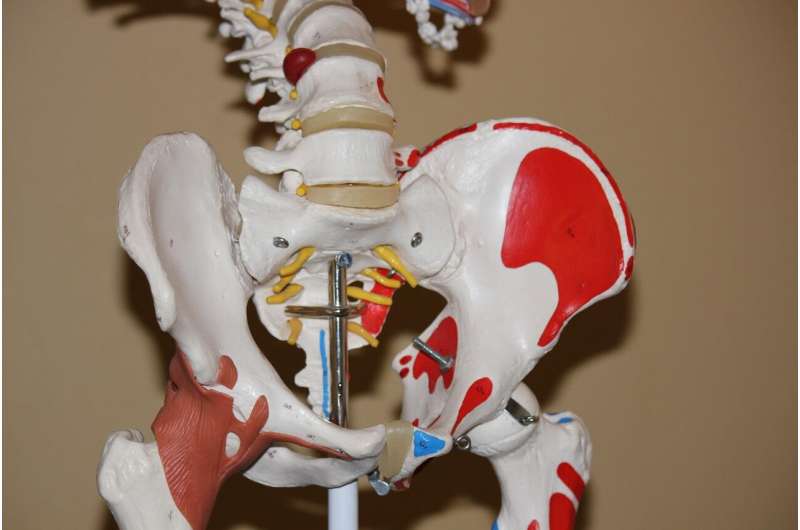This article has been reviewed according to Science X's editorial process and policies. Editors have highlighted the following attributes while ensuring the content's credibility:
fact-checked
trusted source
proofread
New online resource to help health care professionals treat patients with infections after hip replacement surgery

Although infection after hip replacement surgery is relatively rare (around 1 in 100), the impact on patients' lives can be devastating. A new website and toolkit have been developed to help health care professionals understand and implement best-practice guidelines on treating and supporting patients with prosthetic hip joint infections.
The guidelines are the result of the INFORM: EP (INFection and ORthopaedic Management: Evidence into Practice) study, based on the evidence from a successful six-year research program called INFORM led by the University of Bristol. The guidelines aim to ensure that patients with infection after hip replacement surgery receive prompt and effective care and have the best chance of a good outcome.
The new online resource is for surgeons, doctors, physiotherapists, nurses, and other health care professionals who support patients who have had joint replacement surgery. The website includes a series of short films explaining each section of the guidelines and a toolkit with downloadable resources for different health care professionals.
Dr. Andrew Moore, lead researcher for the INFORM Evidence into Practice study, said, "The aim of the website and resources is to provide more information to help health care professionals to use the INFORM guidelines and resources to enable better outcomes for patients with prosthetic infection."
Sue, a hip replacement patient and member of the INFORM EP patient and public involvement group, shares her experience. She said, "I knew something was wrong because it was very painful, and I couldn't move my leg; it was bright red and extremely hot. And I was ill, I had a high temperature, I felt sick, and I started hallucinating. The GP came out and said, 'You need hospital, and you need to go now.' They do blood tests to look at your infection level, and mine was sky-high.
"You've had this operation thinking that life is going to be so much better now because you're not in pain; you're able to walk. And then all of a sudden, it's like, right, this is now happened, is all that gone?"
Professor Ashley Blom, Orthopaedic Surgeon who led the INFORM study team, said, "The INFORM EP study focused on turning evidence into practice, working in partnership with health care professionals and medical centers around the country. The guidelines were developed with input from patients with lived experience of the negative impacts of hip joint infection."
"Understanding and adhering to these evidence-based, best-practice guidelines can help to improve treatment pathways and outcomes for patients."
Key findings from the research:
- Remaining vigilant to the possibility of prosthetic joint infection is important for patients who have had joint replacement surgery, especially those at high risk.
- Prosthetic joint infection needs to be identified quickly and treated by a specialist orthopedic team.
- Do not treat suspected prosthetic joint infection in the community with broad-spectrum antibiotics: to improve their chances of a better outcome refer them urgently to the orthopedic team for assessment.


















